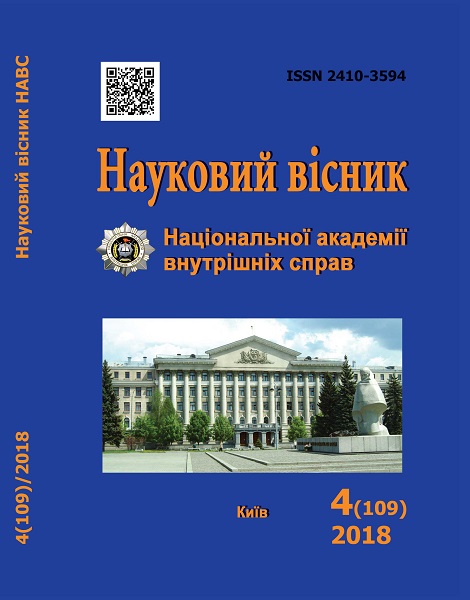The System of Prohibitions and Restrictions on the Receipt of Gifts on the Example of USA Legislation
Abstract
The example of the United States reveals the mechanism of countering corruption through the system of prohibitions and restrictions that exists abroad, and the basic requirements of federal law. The subjects of anticorruption policy in the USA and the peculiarities of their official position are determined. The experience of the USA in the field of regulation of receiving gifts as a state with a federal system is analyzed. In particular, the order of restrictions and prohibitions for officials through the system of rules for receiving gifts by public servants is given. It has been determined that in the United States, every agency, the Congress and the US courts have their own ethical rules. The law on ethics in the executive bodies of 1978 is the basis for the formulation of its own rules of ethics and principles. It is noted that, as in Ukrainian legislation in the federal rules on gift constraints, a civil servant should determine the monetary value of the gift. Only in this case, a person can receive a gift, even if it is only a manifestation of generally accepted hospitality. It is concluded that there is a system of ethical rules and disciplinary norms in the United States regarding prohibitions and restrictions on the receipt of gifts, in particular, they are the Rules for obtaining gifts, the Code of Ethical Behavior of Civil Servants, the guiding Principles of Ethics of the Behavior of Officials and Officials of the State Apparatus. As federal law is different for each state, so the rules on restrictions in the field of receiving gifts have distinctive features in the vast majority reduced by moral standards.
Downloads
Abstract views: 112 PDF Downloads: 65
- Authors reserve the right to authorship of their own work and transfer to the magazine the right of the first publication of this work under the terms of the Creative Commons Attribution License, which allows other persons to freely distribute published work with mandatory reference to authors of the original work and the first publication of an article in this magazine.
- Authors have the right to enter into separate additional agreements on non-exclusive dissemination of the work in the form in which it was published in the journal (for example, to post an article in the institution's repository or to publish as part of a monograph), provided that the link to the first publication of the work in this journal is maintained.
- The journal's policy allows and encourages the posting of articles by authors on the Internet (for example, in electronic storehouses of institutions or on personal websites), both before the submission of this manuscript to the editorial office and during its editorial processing, as this contributes to the creation of a productive scientific discussion and positively affects the efficiency and dynamics of citing the published work.




